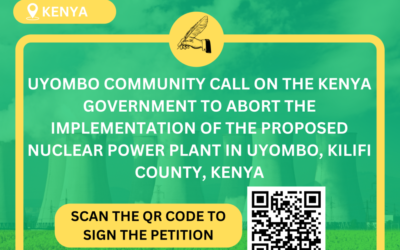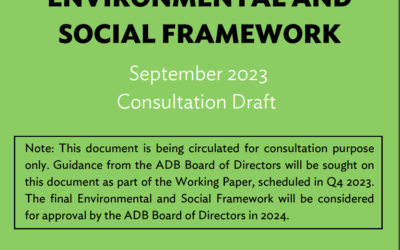By Miriam Lang
In a historic referendum, more than 80% of the electorate in Cuenca, Ecuador’s third-largest city, voted to ban mining in the area.
Ecuadorians voted for their next president on Sunday 7 February, but it wasn’t the only significant decision on ballots.
Cuenca, the third largest city in the South American country, voted to ban mining projects within the nearby drainage basins of five rivers. There are over 4,000 large and small bodies of water in the sensitive Páramo ecosystem, which acts as a reservoir in the Andes. The land, which is directly adjacent to a national park, has been declared a biosphere reserve by UNESCO.
Nevertheless, corporations from Canada, Australia, Peru and Chile had already been granted 43 concessions for the mining of various metals. Fourteen grassroots organisations were behind the referendum, approved by the constitutional court last September via the Cuenca city council.
On Sunday, more than 80% of the electorate voted in favor of the ban. A clear democratic mandate in line with the 2008 constitution, which stipulates the rights of nature.
The result of the referendum is legally binding under the constitution, meaning the next president will have to implement it. Most of the 16 presidential candidates were in favour of expanding mining as a way of leading the country out of the economic crisis. Only one of them has spoken out against mining and an expansion of the oil frontier in the Amazon region: Yaku Perez Guartambel, the leader of Indigenous party Pachakutik.
The presidential election will be decided in a runoff on 11 April. The political heir to ex-president Rafael Correa, Andrés Arauz, who received 32.2% of the votes in the first round, will certainly be on the ballot.
Who Arauz’s opponent will be is still unclear. With all the votes counted, the margin between the right-wing former banker Guillermo Lasso is less than 1%. The country’s top electoral body plans to conduct a partial recount.
For the first time in the country’s history, an Indigenous presidential candidate backed by grassroots organisations has a chance of winning the election. This is already an enormous symbolic success for the Indigenous movement, which made headlines in October for protesting the liberalisation of gasoline and diesel prices.
If Perez makes it to the final ballot, the election will be a fight between two different interpretations of leftism. Arauz is the candidate of the populist, authoritarian left, embodied by the Citizen Revolution Movement, which was in power from 2007 to 2017. During its term, the party relied on an expansion of extractivism to finance infrastructure and social programs. It promised more equality, but at the price of the destruction of nature and a de facto restriction of democratic rights.
Perez, the former governor of Cuenca, represents an intercultural and ecological left that primarily appeals to younger generations, puts issues such as climate change and the preservation of the rainforest at the forefront of its agenda. His party builds on the legacy of the 1990s Indigenous movement and their communitarian form of politics. Perez’s surge has brought fresh air to a stale political contest between the old, progressive left (represented by Arauz) and the reactionary right (represented by Lasso).
Ecuador has some of the greatest biodiversity in the world. At a time of mass species extinction, an economic policy that relies on more mining and oil production could have incalculable consequences far beyond the small country. The pandemic has led to an expansion and acceleration of nature-destroying activities in a legal gray area throughout Latin America, as environmental controls have been largely suspended. At the same time, it has made it very clear that the advance of capitalist overexploitation into fragile ecosystems harbors great dangers for humanity.
In Cuenca, people have spoken out decisively against mining. This paves the way to discuss urgently needed fundamental change in economic policy, which puts life-sustaining imperatives such as food sovereignty and clean water above those of the market.
Source: Open Democracy



0 Comments